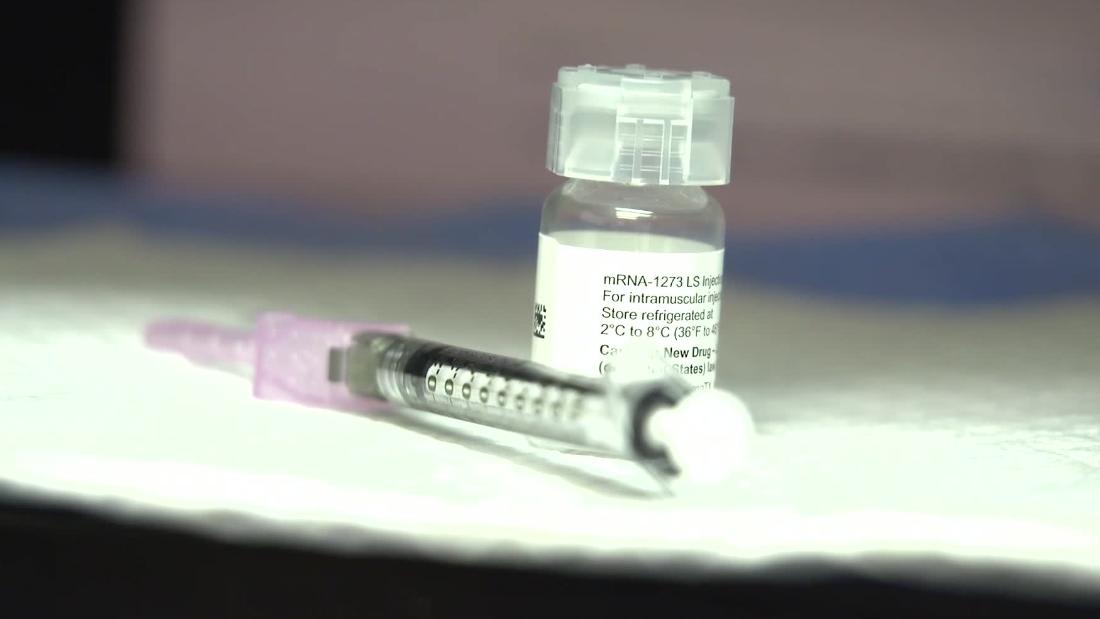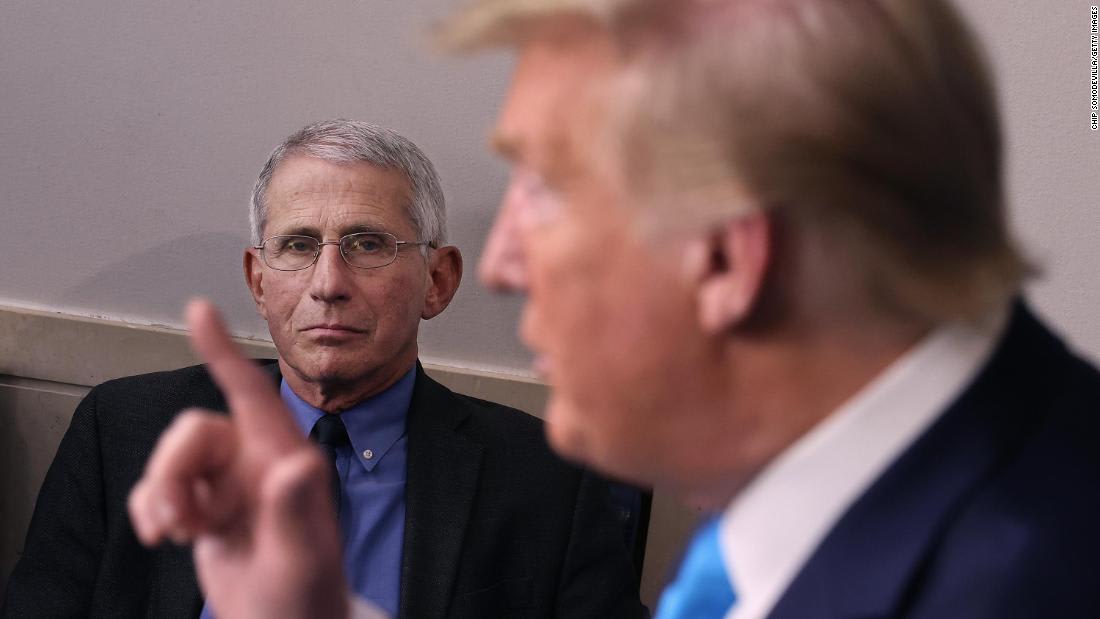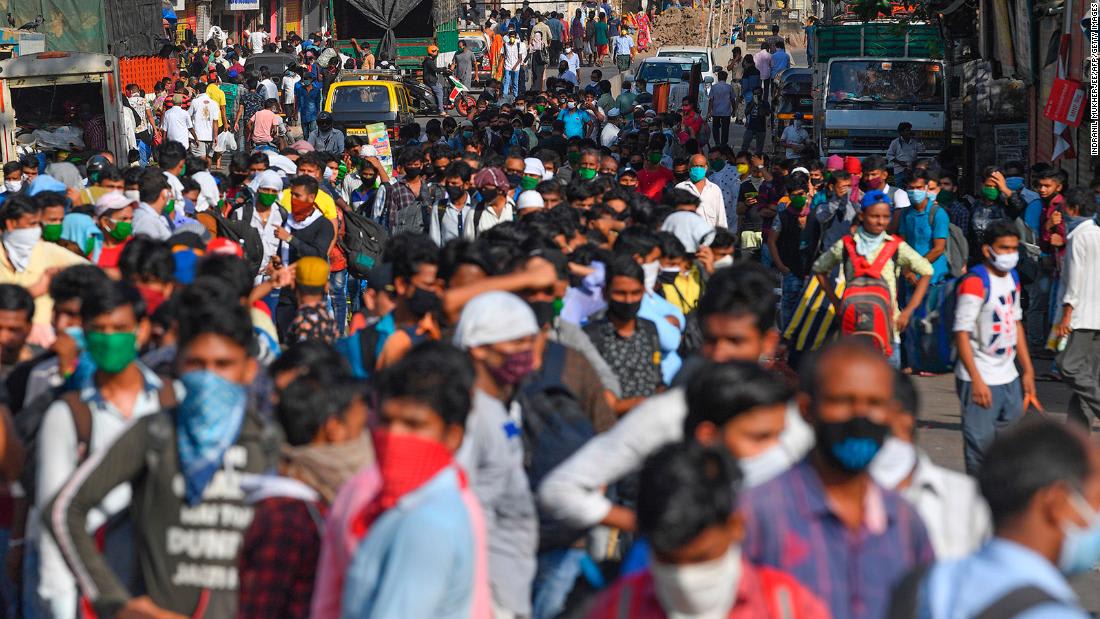AstraZeneca's coronavirus vaccine becomes third to begin Phase 3 trials in the US
From CNN's Andrea Kane
British drugmaker AstraZeneca said Monday it has started Phase 3 trials of its experimental coronavirus vaccine in the United States, becoming the third company to start late-stage trials of a Covid-19 vaccine.
The vaccine, developed in partnership with Oxford University, has the backing of the US federal government. Rivals Moderna and Pfizer/BioNTec already have Phase 3 trials under way, also with federal government funding.
Participants will receive two active or placebo doses, spaced four weeks apart. Currently, Phase 3 trials of AstraZeneca's vaccine are going on in Britain, Brazil and South Africa. Trials are also planned for Japan and Russia.
AstraZeneca says it intends to enroll more than 50,000 volunteers globally, including 30,000 in the US, as well as participants in Latin America, Asia, Europe and Africa.
Read the full story:
Japan confirms 434 new coronavirus cases
From CNN's Junko Ogura in Tokyo
Japan confirmed 434 new coronavirus cases and 17 virus-related deaths nationwide on Monday, according to the country's Health Ministry.
Of the new cases, 100 were in the capital Tokyo.
Monday's figures raise the country's total to 69,104 cases and 1,309 deaths.
As of Monday, 236 patients are critically ill with the virus, according to the Health Ministry.
Mississippi governor extends Covid-19 order ahead of Labor Day
From CNN’s Micha Palmer
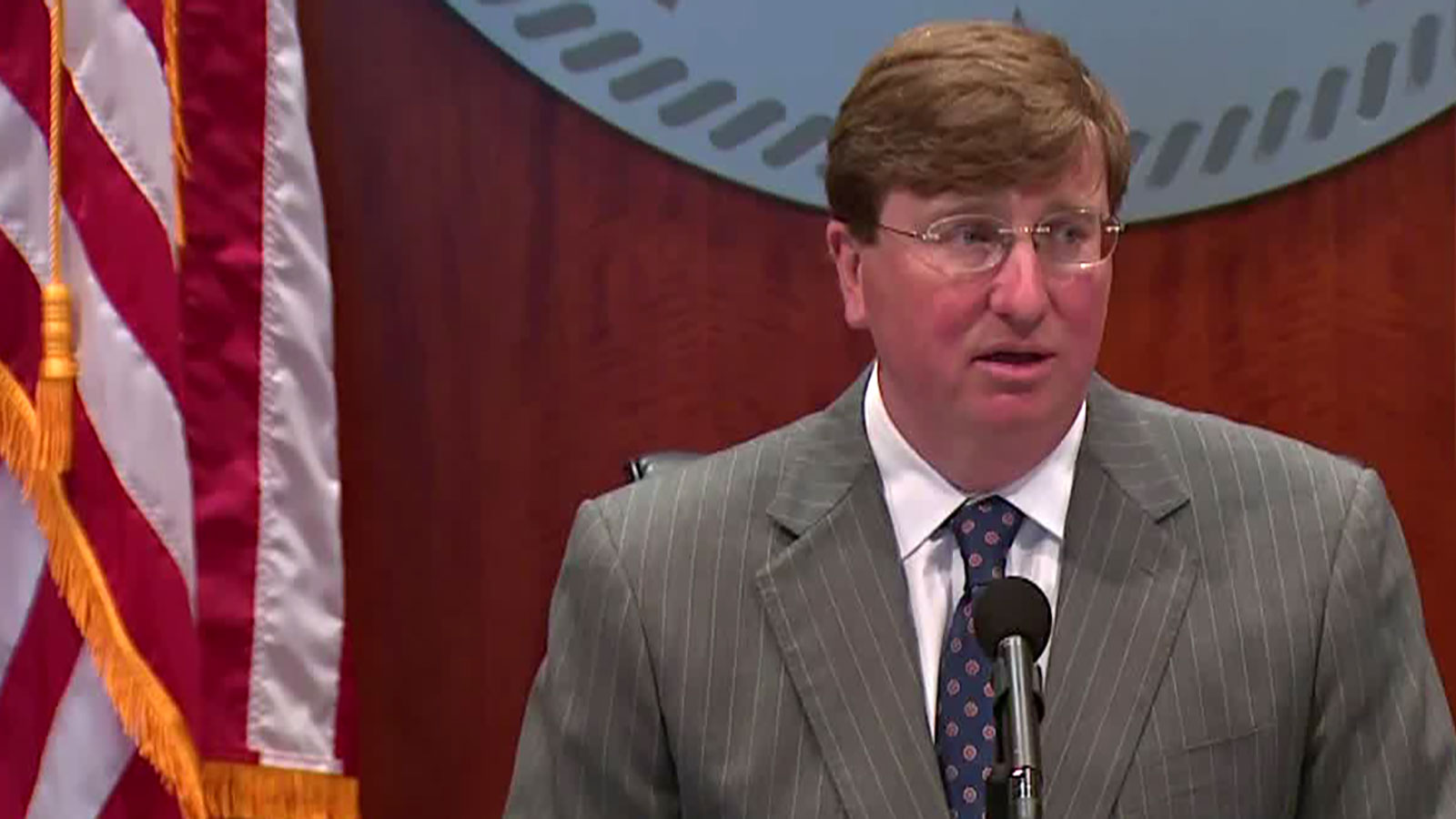 Mississippi Gov. Tate Reeves speaks at a news conference on Monday, August 31. Pool
Mississippi Gov. Tate Reeves speaks at a news conference on Monday, August 31. PoolMississippi Gov. Tate Reeves announced Monday that he is extending his Covid-19 mitigation orders.
With Labor Day right around the corner, the governor urged people to continue social distancing and wearing masks.
The extended restrictions come with one change -- Reeves will increase the number of spectators allowed at school sports and extracurricular events to 25%.
Infections at school: In the past week alone, there have been 123 preliminary cases of coronavirus among teachers and staff, and 251 cases among students, said Dr. Paul Byers of Mississippi's Health Department.
There are now more than 3,400 students and 450 teachers under quarantine as a result of exposure, Byers said.
He added that the state's daily cases may be slightly going up, “but it’s not as dramatic as the increases that we saw, especially after the Fourth of July, and we certainly hope that we don’t see a similar picture after Labor Day.”
Colombia reports more than 7,000 new coronavirus cases as unemployment soars
From CNN’s Stefano Pozzebon in Bogota and Leighton Rowell in Atlanta
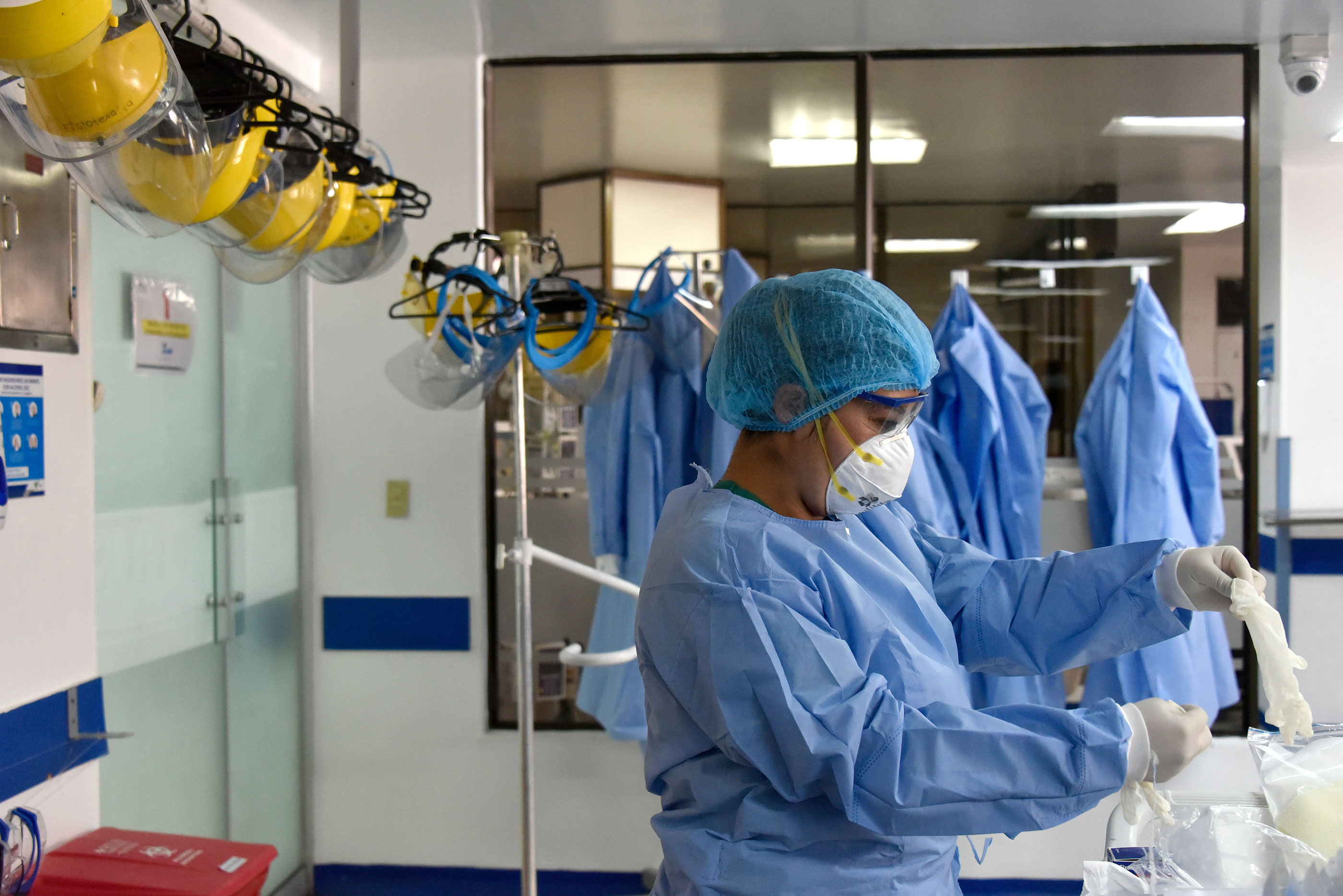 A health worker prepares to treat a patient with Covid-19 in the Intensive Care Unit at de La Samaritana University Hospital on August 28 in Bogota, Colombia. Guillermo Legaria/Getty Images
A health worker prepares to treat a patient with Covid-19 in the Intensive Care Unit at de La Samaritana University Hospital on August 28 in Bogota, Colombia. Guillermo Legaria/Getty ImagesColombia’s Health Ministry reported 7,230 new cases of Covid-19 on Monday -- the lowest daily increase since August 4.
This marks the country’s fifth consecutive day reporting fewer than 10,000 new cases.
It also reported 299 new virus-related deaths.
Monday's figures bring Colombia's total to 615,168 cases and 19,663 deaths, according to the ministry.
Rising unemployment: As the number of new infections declines, unemployment is on the rise in Colombia.
The unemployment rate topped 20% in July -- double the rate reported in July 2019, according to the country’s national statistics agency.
On Saturday, Colombian President Iván Duque Márquez announced the government’s plan to open a credit line worth $370 million for the bankrupt state airline Avianca to help prevent further layoffs.
After overtaking Mexico on Thursday, August 27, Colombia now trails only Brazil and Peru with the third-highest number of coronavirus cases in Latin America, according to data compiled by Johns Hopkins University.
Global survey shows 74% of people are willing to get a coronavirus vaccine
From CNN's Maggie Fox
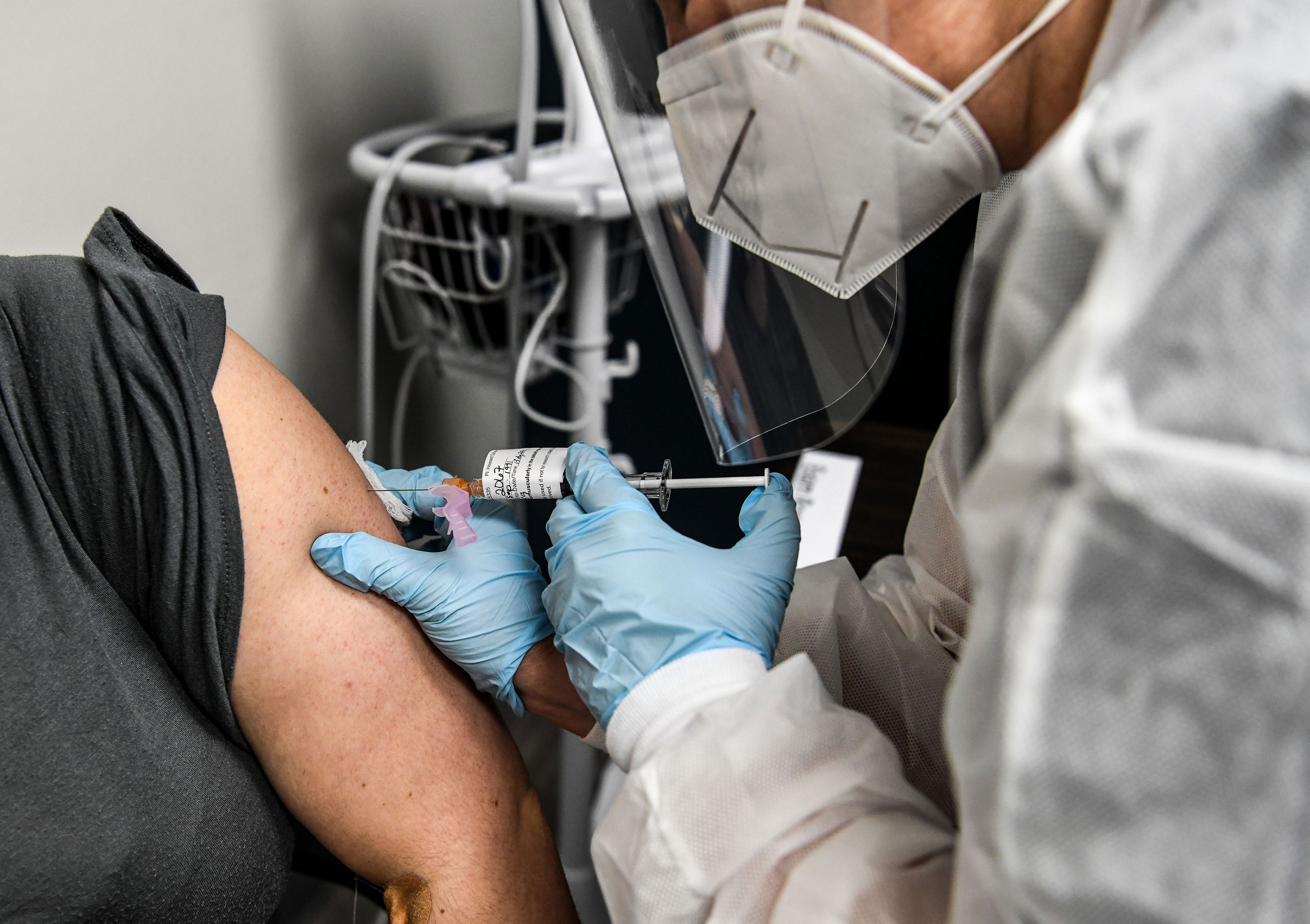 A patient receives a coronavirus vaccine as part of a study at the Research Centers of America on August 13 in Hollywood, Florida. Chandan Khanna/AFP/Getty Images
A patient receives a coronavirus vaccine as part of a study at the Research Centers of America on August 13 in Hollywood, Florida. Chandan Khanna/AFP/Getty ImagesAbout three-quarters of people surveyed around the world say they’d be willing to get a coronavirus vaccine if one came out, with the most enthusiasm in China and the least in Russia.
The poll, conducted by Ipsos for the World Economic Forum, surveyed nearly 20,000 people across 27 countries.
The survey showed:
Experts expressed concern that more than a quarter of people worldwide would not get the vaccine.
Here's how long it took the US to reach 6 million Covid-19 cases
From CNN's Amanda Watts, Holly Yan and Madeline Holcombe
There have been more than 6 million cases of coronavirus reported in the United States, according to data compiled by Johns Hopkins University.
JHU recorded the first case of coronavirus in the US on January 21. Here's how the country got to more than 6 million:
Only two other countries in the world have over 1 million reported Covid-19 cases -- Brazil and India.
But there's a bit of good news for the US, according to health experts.
"(Daily) cases have come down. Deaths are starting to decline. Hospitalizations are down. This is good news, and it's largely because of smart policies in Texas and Arizona and Florida around masking and closing bars," Jha said.
"But there are still parts of the country where things are both bad and even getting worse. In the Dakotas, in Kansas and other states, we still see a lot of cases. And as a nation, we're still seeing a lot of cases of coronavirus. So progress, but we have a long way to go."
Despite Trump's positive messaging, White House coronavirus task force report shows dire reality
From CNN's Betsy Klein
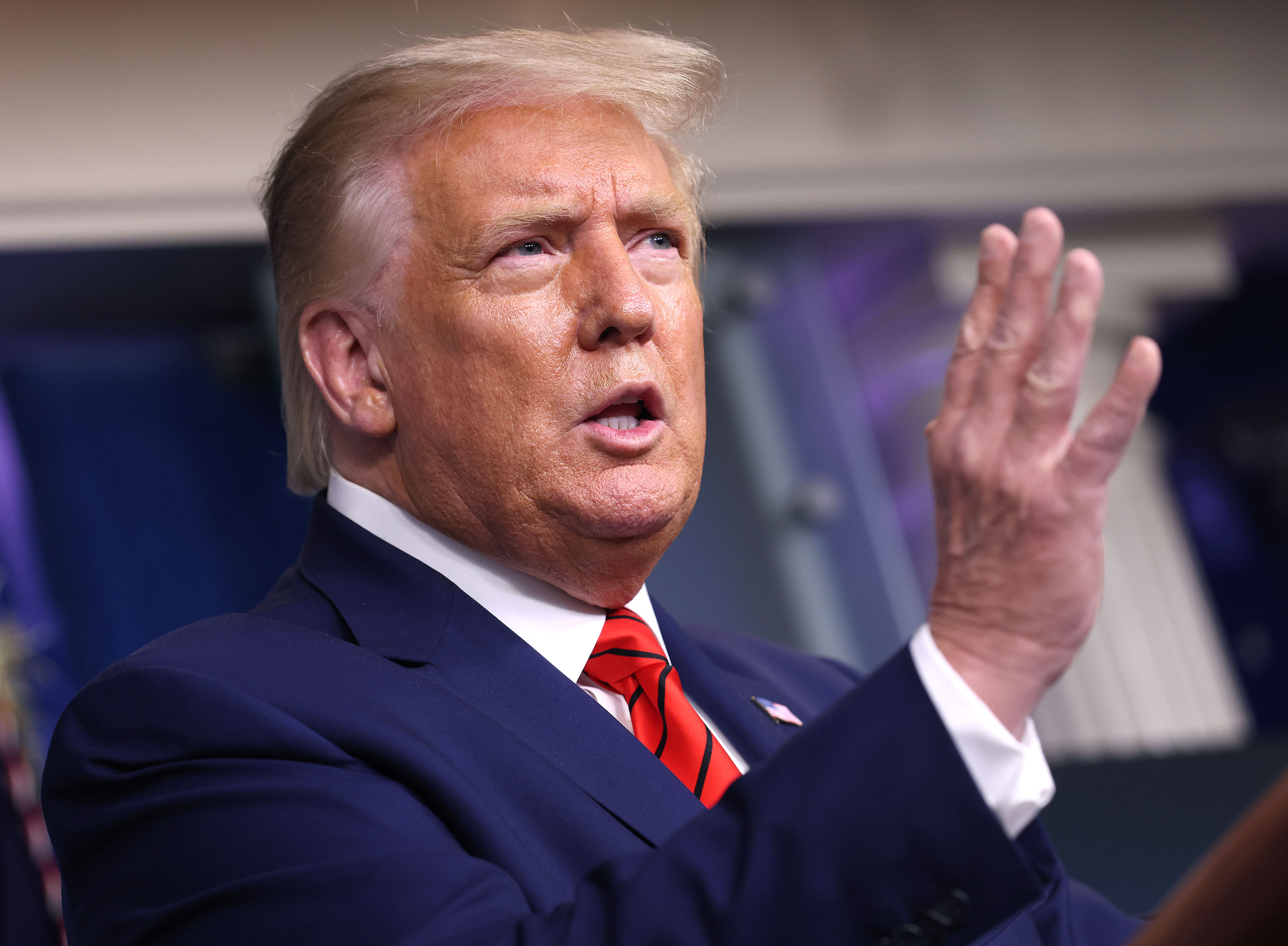 President Donald Trump speaks during a news conference at the White House on August 31 in Washington, DC. Win McNamee/Getty Images
President Donald Trump speaks during a news conference at the White House on August 31 in Washington, DC. Win McNamee/Getty ImagesAs US President Donald Trump was painting a positive picture of the coronavirus pandemic and urging states to reopen the nation's businesses and schools, data from the White House coronavirus task force released Monday shows he was getting increasingly dire reports about the spread of the pandemic in July and August.
The House Select Subcommittee on Coronavirus on Monday published eight weeks' worth of state reports compiled by the White House task force.
The task force releases these reports each week to governors' offices for their respective states, and has previously declined to make them publicly available or confirm the authenticity of any of the data reported. There had been some discussion on a call with governors earlier this month, audio of which was obtained by CNN, about making some of the data publicly accessible in real time, but that has yet to happen.
The most recent of the eight reports released by the subcommittee is dated August 9. Since then, the course of the pandemic has changed, improving in some places and getting worse in others.
The 459-page August 9 report has a section for each state, which includes extensive data on the state's cases down to a county level, as well as detailed, private recommendations to state and local officials to slow the spread, including promoting social distancing and face coverings, implementing contact tracing, and closing bars and nightclubs in "red zone" states.
The "red zone" indicates there are more than 100 new cases per 100,000 population and/or test positivity is above 10%, per the task force's definition. There were 20 states in the task force's "red zone" as of August 9.
The "yellow zone" indicates between 10 and 100 new cases per 100,000 population and/or test positivity between 5 and 10%, per the task force's definition. There were 28 states plus the District of Columbia in the "yellow zone."
Just two states, Maine and Vermont, were in the green zones for test positivity and cases.
On the same day that report was released, Trump claimed that coronavirus cases were rising due to increased testing, which is disproven by the many states in the report with rising test positivity rates -- meaning the proportion of people who test positive compared to negative, which can signal a burgeoning outbreak.
Read more about the report:
India is moving ahead with reopening despite daily coronavirus caseload surges
From CNN's Nectar Gan and Esha Mitra in New Delhi
India is entering a new phase of reopening that will see subway trains running for the first time in months, despite skyrocketing daily coronavirus infections that are showing no sign of slowing down.
The country of 1.3 billion people has reported more than 75,000 infections for five consecutive days -- the fastest growing caseload of any country in the world.
India's infection rate has increased exponentially in recent weeks. It took almost six months for the country to record 1 million cases, another three weeks to hit 2 million, and only 16 more days to hit 3 million.
At this rate, India's total number of cases, now at over 3.6 million, is on track to outnumber that of Brazil to become the second highest in the world, behind the US.
But India's death toll remains relatively low compared to its infection numbers. As of Sunday, India reported 64,469 coronavirus deaths -- about half of Brazil's death toll -- with a mortality rate of 1.79%, according to its Health Ministry.
As infections soar, the Indian government has continued to lift lockdown measures. On Saturday, the Ministry of Home Affairs announced India will enter a new phase of reopening on September 1 known as "unlock 4."
That includes the resumption of the country's metro rail services in a "graded manner" from September 7, according to the ministry's statement.
Under the new rules, gatherings of up to 100 people will be permitted at sports, entertainment, cultural, religious and political events outside of hot-spot areas from September 21, with mandatory face-mask wearing and social distancing measures.
Schools and colleges will remain closed until the end of September, although up to 50% of the teaching staff will be allowed to return to campus to teach online courses, and students from Year 9 to 12 can also return on a voluntary basis.
Read the full story:

 5 years ago
584
5 years ago
584 